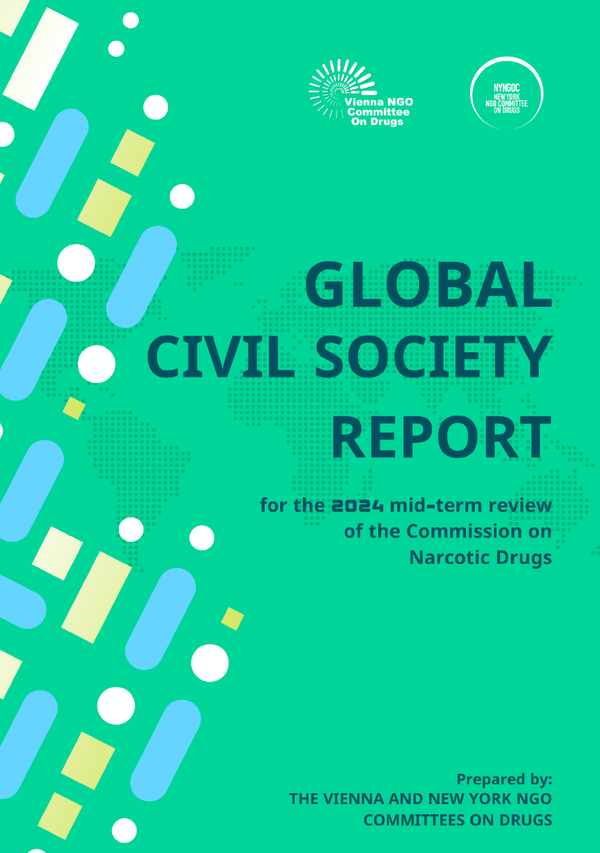Global civil society report for the 2024 mid-term review of the Commission on Narcotic Drugs
The Vienna and New York NGO Committees on Drugs welcome the opportunity to provide this report highlighting the broad perspectives of global civil society who work in the field of drugs to the 2024 Mid-Term Review. This report presents findings from civil society contributions to the CND Thematic Discussions under the CND 2019-2023 work plan, alongside insights from recent regional consultations and a global online survey of civil society representatives.
A total of 173 global civil society organizations participated in the online survey in late 2023, complemented by regional consultations across Africa, Asia-Pacific, the Americas, and Europe during late 2023 and early 2024. Additionally, written contributions were received from organizations in the Middle East and youth-led groups. The majority of the respondents who contributed identified as directly involved in service provision to people who use drugs and other community members or as advocacy organizations operating at the national or local level in their respective countries. Their work focuses predominantly on the fields of health, education, and human rights-based approaches to address drug-related issues.
This report seeks to compile the diverse perspectives of civil society regarding progress made on the 11 challenges outlined in the 2019 Ministerial Declaration. It provides detailed insights from respondents concerning the inadequacy of reliable data for assessing the impacts of advancements in drug-related issues. Additionally, the report documents civil society's observations on both progress and challenges related to the identified topics, showcasing examples of how NGOs are actively addressing these issues on the ground.
Many respondents pointed to setbacks or stagnation in addressing challenges associated with the rise in drug-related deaths, unmet needs for drug treatment and health services, non-compliance with international drug control conventions, and human rights obligations. Similarly, there were concerns about the insufficient value of confiscated proceeds of crime linked to money laundering arising from drug trafficking. Notably, challenges perceived to have made the most progress were related to the expansion and diversification of the range of drugs and drug markets, as well as the high transmission of HIV, HCV, and other blood-borne diseases associated with drug use. In terms of relevance to their areas of work, civil society respondents highlighted challenges one, four, five, and six as the most significant.
Additional challenges, progress, and emerging trends highlighted by the respondents encompass 1) insights into civil society engagement within the UN system, with a particular focus on Vienna; 2) the progressive impact of discussions on drug policy at the UN General Assembly and Human Rights Council; 3) the stagnancy of drug policies; 4) the impact of war and crises; 5) harassment and violence experienced by civil society, and 6) the lack or inadequacy of funding. The report closes by identifying key issues related to the way forward towards 2029, calling for support for capacity building in public health, evidence-based prevention, comprehensive and quality harm reduction, and equitable access to treatment and recovery services. It also underscores the need for non-discriminatory and human rights-based drug policies, including moves towards non-punitive and proportionate approaches. Finally, the report emphasizes the importance of increased financial support for NGOs and enhanced international cooperation that acknowledges the compliance of drug policies with broader international treaties.
